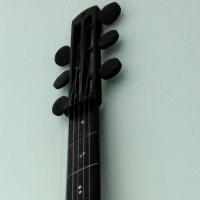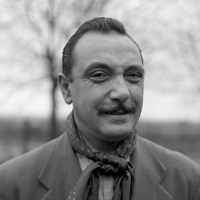DjangoBooks.com
Welcome to our Community!
Categories
- 20K All Categories
- 1.1K General
- 485 Welcome
- 60 Archtop Eddy's Corner
- 147 CD, DVD, and Concert Reviews
- 385 FAQ
- 26 Gypsy Jazz Italia
- 27 Photos
- 209 Gypsy Picking
- 21 Unaccompanied Django
- 15 Pearl Django Play-Along Vol.1
- 17 Gypsy Fire
- 45 Gypsy Rhythm
- 1.4K Gypsy Jazz University - Get Educated
- 131 Gypsy Jazz 101
- 231 Repertoire
- 228 History
- 709 Technique
- 51 Licks and Patterns
- 6 Daniel Givone Manouche Guitare Method Users Group
- 20 Eddie Lang Club
- 1.3K Gypsy Jazz Gear
- 816 Guitars, Strings, Picks, Amps, Pickups and Other Accessories
- 465 Classifieds
- 52 Recording
- 64 Other Instruments
- 18 Violin
- 5 Mandolin
- 23 Accordion
- 7 Bass
- 11 Woodwinds
- 352 Gypsy Jazz Events
- 145 North America
- 112 Europe
- 95 International
In this Discussion
Who's Online (0)
French Jazz Magazine latest issue has lots of Django related content
 BillDaCostaWilliams
Barreiro, Portugal✭✭✭ Huttl, 9 mandolins
BillDaCostaWilliams
Barreiro, Portugal✭✭✭ Huttl, 9 mandolins











Comments
And strangely in the blurb it repeats the claim that Django was French.
Even though he lived mostly within France and he ( and his tribe) did not really recognise borders, he was born in Liberchies in Belgium.
Well one can perhaps understand the French wishing to claim Django.
We Irish claim Obama as one of our own!
Hi,
I believe that Django's nationality has already been discussed in the forum.
According to the french law the nationality of a child wether born in France or abroad depends mainly on the parents nationality. To my knowledge, none of Django's parent was Belgian, so DR was french. DR had french identity papers and was searched by french army for military service (but he was in hospital after the fire of his caravan).
And finally when Django and Stephan met after the war they played 'La Marseillaise' and not the Belgian national anthem 'La Brabançonne'.
May be DR coud have obtained the belgian nationality when he was 21 (which was the age of legal majority at that time).
Best
François
Yes, Django was no more Belgian than Boris Johnson (born in New York) is American.
or that Bruce Willis is German
Although using the logic used above for Django's parents, Bruce's mother was German and he was born there. So, by blood or soil, he would certainly have a claim to being German. If his parents chose to forego that opting instead for American citizenship would have made sense considering the time period (1950s). However, he would have a right to claim both nationalities. I believe he would have had to reassert his claim to Germany once he reached his majority.
I don't know the nationality laws of Belgium but Django may have had a right to citizenship by soil. That he chose to record La Marseillaise as quoted above certainly indicates to which nationality he had become acculturated.
And even talking of Django's ancestry is not so simple. The Reinhardt clan were from the Alsace region which borders Germany and his grandparents were living in Strasbourg when the Franco-Prussian war ended in 1871 and as that city became German they (according to Delaunay) decided to settle in France. Delaunay also repeats the suspicion that Django's father was "probably" Jean Vées, but if that was never certified - ie was there a birth certificate registered? - even that is only hearsay.
Then too, I had heard or read somewhere that the Vées name was just a Frenchified version of the German Weiss and apart from Eugene Vees often being referred to as Django's cousin I know the later generation of Weiss; Hans'che and Martin and so on, were considered German too; but are they related? So too Schnuckenack Reinhardt was German but many of the names who come from the Alsace region; Winterstein, Mehrstein etc could claim to be either French or German.
Or one other racial detail I never quite understood; what is the difference between Manouche and Sinti? Are they just two different French and German labels for the same thing or have they always been separate tribes? If so, how far back does the separate ancestry claim to go?
Following up on the above, where Delaunay refers to Django's father as Jean Vées I just re-read Michael Dregni's version which states the father was Jean-Eugène Weiss (who sometimes went by the name of Vees) and to confuse further he did register a birth certificate but used the name Jean-Eugène Reinhard (without the t) as an alias. Dregni goes on to explain the familiar story of how the names were often changed according to borders and other circumstances but this all mattered little to the people concerned who had only adopted such names to pacify the authorities and continued to use their Gypsy names among their own kind.